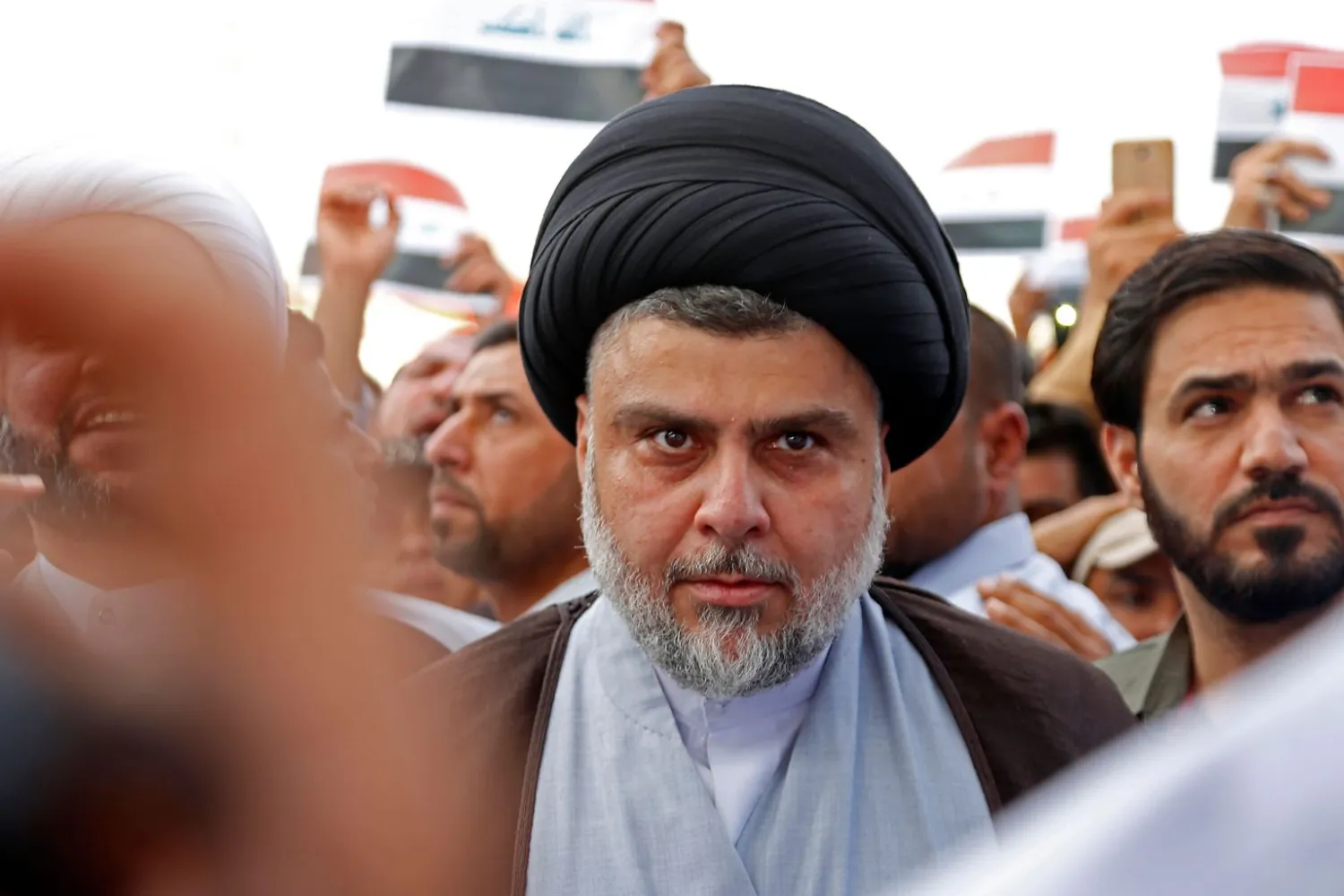In wake of his shock victory in the Iraqi parliamentary elections, Sadrist movement leader Moqtada al-Sadr began receiving in Baghdad numerous political leaders, notably Prime Minister Haidar al-Abadi and Fatah alliance chief Hadi al-Ameri, in an attempt to forge an alliance at the new legislature.
Ameri came in second in the elections and Abadi third.
Sadr formed a negotiating delegation, headed by senior Sadrist leader and former Labor Minister Nasser al-Rabihi, to hold talks with all parties in order to form the largest parliamentary bloc.
This will precede the formation of what Sadr dubbed a “paternal government”.
“Sadr emphasized the need to speed up the formation of a paternal government as soon as possible so that it could begin servicing the nation,” read a statement from Sadr’s office.
The shape and spirit of the new government should be a “national” decision and inclusive of all winning blocs, the statement added.
But no clear explanation or detail was offered by any official about Sadr’s vision for the paternal government, save for it being all-inclusive.
This inclusiveness stands in stark contrast to Sadr’s reform uprising in 2015 and 2016. Today, he finds himself forced into becoming part of one regional-international camp that would inevitably lead to distance growing between him and another.
The conflict between rival camps is now the main factor in the current political maneuvering in Iraq, while programs and projects that were touted before the elections have taken a backseat.
Sadr won 54 seats in parliament, Ameri’s alliance won 47 seats, Abadi’s Nasr (Victory) coalition 42 seats, former PM Nouri al-Maliki’s State of Law won 25 and Ammar Hakim’s Hikma movement won 22.
Although the above main Shiite political blocs are enough to forge the largest alliance in parliament, with 165 out of 328 seats, obstacles remain in ensuring that all components in Iraq, such as Kurds and Sunnis, are represented.
Integrating these minorities has taken a backseat to sectarian and ethnic disputes and calculations. These disputes have proven to be obstacles and sources of conflict in Iraq.
Given this failure, political forces have started to propose alternate approaches for parliamentary supremacy, such as establishing concepts like “political majority,” “national majority,” and, finally, the Sadr-styled “paternal government” - the latest attempt to brand and promote his political orientation in both national and Shiite arenas.
“Political majority is still the best option compared to previous experiences, which were based on quotas and consensual rule that courted American-Iranian approval, but proved to be failures,” independent Shiite politician Izzat Shabandar told Asharq Al-Awsat.
Despite the lack of clarity over the government that Sadr is now promoting, Shabandar believed that “the nationalist views expressed by him, which show disdain for sectarianism, happen to coincide with the political majority project as a national project.”
“This majority will serve as the first building block in Iraq's political and economic development.”









